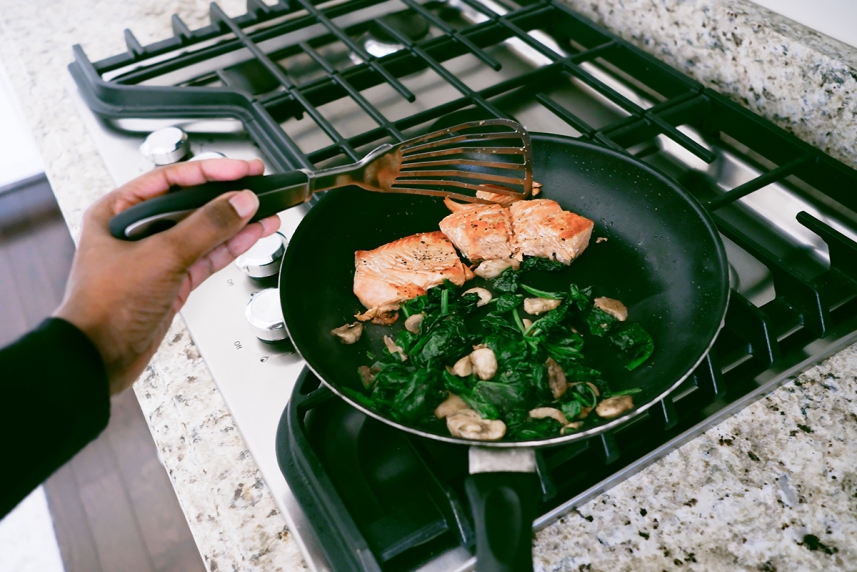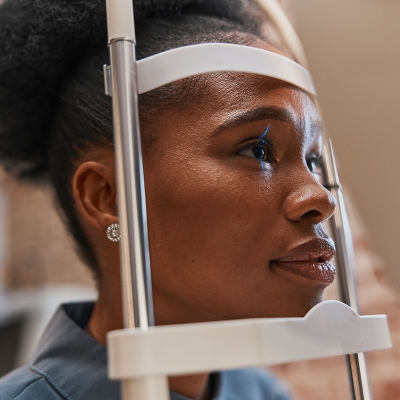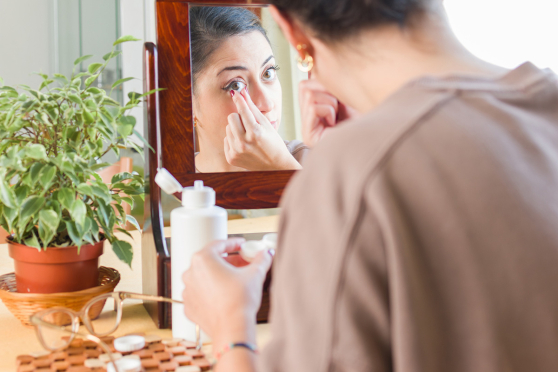Eat your way to sharper eyesight
It’s not just carrots that help you see better. Discover the other foods to add to your plate to keep your eyes healthy.

This article is part of UnitedHealthcare Vision’s Healthy Vision Challenge. Taking care of your eyes is critical to your overall health and wellness. It’s smart to be thinking about the quality of your vision all the time, not just when your eyes are bothering you or your experiencing changes. If you can make these behaviors part of your everyday routine, you could have healthier eyes for life.
Your eyes are what you eat. OK, that’s not exactly the saying, but it still rings true. “Nutrition has a big effect on every organ in your body, including your eyes,” says Angelica Cifuentes, O.D., an optometrist in Miami.
It also turns out that foods that are good for your heart are also good for your eyes, adds Jen Wademan, O.D., an optometrist in Folsom, California. Your eyes are rich in blood vessels. A heart-healthy diet can lower the odds of developing diseases or conditions that can damage blood vessels, including high blood pressure and high cholesterol.1
Damaged blood vessels can’t deliver nutrients and oxygen to your eyes (or the rest of your body), making you more vulnerable to diseases that rob your eyesight.
What exactly is a heart-healthy diet? It’s one that’s filled with a range of colorful fruits and vegetables. It also highlights whole grains, plant-based proteins such as beans and nuts, seafood, low-fat dairy, lean meat and healthy fats. These foods provide a range of vitamins, including A, D and E. “All these nutrients are healthy for different aspects of your vision,” says Wademan.
Here are 4 types of foods and an eating plan that are especially good for your eyes.
Providers in the UnitedHealthcare Vision Network are here to help keep your vision healthy. Search for a provider now.
To keep your vision sharp: Load up on leafy greens
Your mom might have told you to eat your carrots, but it turns out that green veggies are also great for healthier eyes. Spinach, kale, lettuce, broccoli and peas are packed with lutein and zeaxanthin.2 These are antioxidants that nourish the macula, says Cifuentes. That’s the part of the eye that helps you see what’s straight ahead of you. Lutein and zeaxanthin may also protect your retina (your eye’s “camera film”) from the damaging effects of light.3
To help your eyes age well: Feast on fatty fish
Age-related macular degeneration is a leading cause of vision loss among older adults.4 Eating more omega-3 fatty acids — found in fatty fish such as salmon — can cut your risk by about a third.5 Omega-3s cut down the number of free radicals in your body (those are molecules that can damage cells). They can also lower inflammation.
To counter cataracts: Consume vitamin C–rich produce
Cataracts are filmy areas on the lens of your eye. Most are slow growing and they start to develop at around age 40, but symptoms generally aren’t noticeable until age 60. Over time, your eyesight gets hazier, but getting plenty of vitamin C may help lower your chance of developing age-related cataracts.6 Strawberries, kiwi and bell peppers are especially rich in vitamin C.
To cut the risk of age-related macular degeneration (AMD): Reach for an orange
Oranges are high in vitamin C, and they also contain flavonoids. Those are plant compounds with antioxidant properties. Eating at least an orange a day was found to cut your chance of developing late AMD by 61% after 15 years.7
To avoid dry eyes: Try the Mediterranean diet
“Inflammation plays a big role in dry eye disease,” says Wademan. A Mediterranean diet can lower inflammation. Most Mediterranean meals feature more produce, beans, nuts, fish and olive oil, instead of a lot of meat and dairy. In fact, eating a Mediterranean diet for 6 months might ease dry eye symptoms, especially in people with metabolic syndrome (a cluster of conditions that increase your risk of heart disease, stroke and type 2 diabetes).8
Start loading up your plate and grocery cart with more of these foods. They can help your eyes — and they’re good for your heart and body too.
Another way to get clearer vision? LASIK surgery. UnitedHealthcare Vision members get up to 35% off laser vision correction services. Schedule a free exam today!
Sources:
- Prevent Heart Disease Centers for Disease Control and Prevention, last reviewed March 2023.
- Dietary Sources of Lutein and Zeaxanthin Carotenoids and Their Role in Eye Health Nutrients, April 2013.
- Lutein and Zeaxanthin Isomers in Eye Health and Disease Annual Review of Nutrition, July 2016
- Age-Related Macular Degeneration (AMD) National Eye Institute, Updated June 2021.
- Dietary omega-3 polyunsaturated fatty acids and fish intake and risk of age-related macular degeneration Clinical Nutrition, December 2021.
- Nutritional effect on age-related cataract formation and progression Current Opinion in Ophthalmology, 2018.
- Dietary flavonoids and the prevalence and 15-y incidence of age-related macular degeneration American Journal of Clinical Nutrition, August 2018.
- Effectiveness of Mediterranean Diet Implementation in Dry Eye Parameters: A Study of PREDIMED-PLUS Trial Nutrients, May 2020


